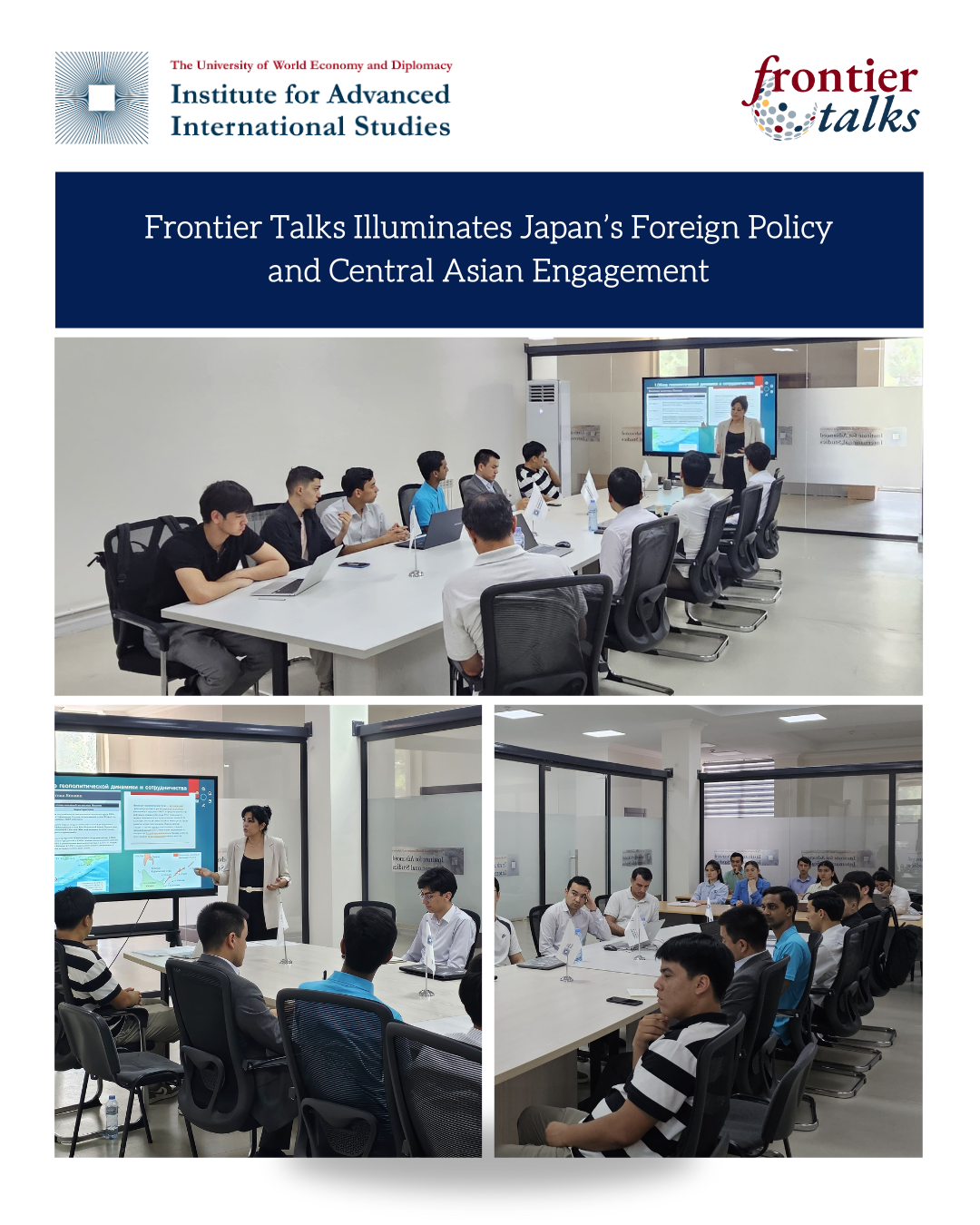
Today we convened a seminar with Mekhriniso Abdurasulova, Head of the Japan Studies Program at IAIS, who delivered an in-depth seminar entitled on The Japanese Government’s Current Foreign Policy and Recent Trends. Drawing an attentive audience of experts and students, the session explored Tokyo’s evolving diplomatic posture amid shifting global dynamics and offered a nuanced appraisal of Japan’s strategic priorities in an increasingly volatile international environment.
Ms Abdurasulova opened by situating Japan within its unique geographic and demographic context before turning to Tokyo’s role in major multilateral frameworks. She detailed Japan’s active engagement in the Quadrilateral Security Dialogue (Quad) and its leadership within the Comprehensive and Progressive Agreement for Trans-Pacific Partnership (CPTPP), highlighting how these platforms underpin Tokyo’s efforts to uphold a rules-based order while balancing relations with both the United States and China.
The seminar further examined the impact of recent protectionist measures emanating from Washington, notably the tariff policies introduced under the Trump administration. The speaker explained that, while these measures have strained US–Japan trade relations, they have simultaneously created openings for Japanese firms to diversify partnerships and reinforce supply-chain resilience. In response, Tokyo has pursued a dual strategy of diplomatic negotiation and targeted budgetary support to mitigate risks and preserve its longstanding alliance with the United States.
Turning to bilateral ties between Japan and Uzbekistan, Ms Abdurasulova underscored the significance of Japanese Official Development Assistance and investment activities facilitated by JICA (Japan International Cooperation Agency) and JETRO (Japan External Trade Organization). She cited the successful collaboration between O‘zavtosanoat and Isuzu as emblematic of the deepening industrial cooperation between the two countries. Her analysis concluded that such joint ventures not only bolster Uzbekistan’s manufacturing capabilities but also exemplify Japan’s broader strategy of fostering sustainable development across Central Asia.
The event closed with a lively Q&A segment, during which participants engaged Ms Abdurasulova on topics ranging from cultural diplomacy to Japan’s defense spending and future outlook. Reflecting IAIS’s commitment to knowledge-sharing, this Frontier Talks seminar provided both a comprehensive overview of Japan’s foreign policy trajectory and practical insights for strengthening bilateral and multilateral partnerships in the region.